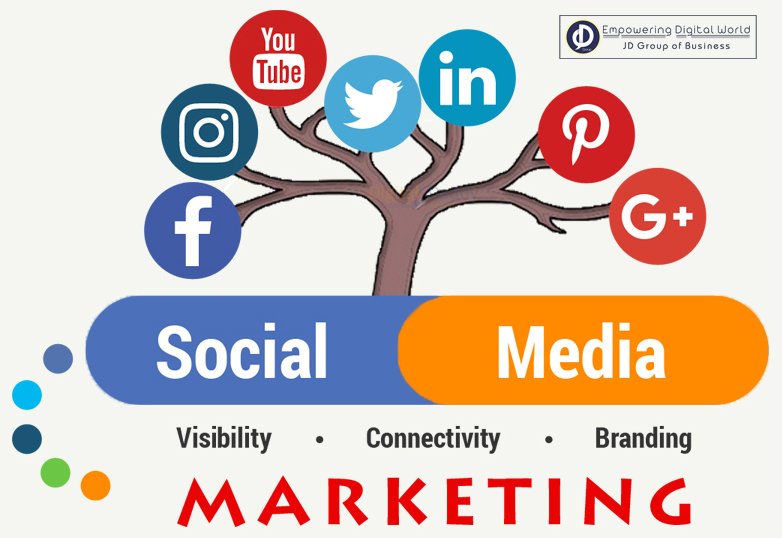Title: Mastering the Art of Social Media Marketing: A Comprehensive Guide
In today's digital age, social media has emerged as a powerhouse for businesses seeking to connect with their target audience, build brand awareness, and drive engagement. With billions of active users across various platforms, social media marketing has become an indispensable tool in every marketer's toolkit. In this blog post, we'll explore the ins and outs of social media marketing, uncovering strategies, tips, and best practices for harnessing the full potential of social media to propel your business to new heights.
**Understanding Social Media Marketing**
Social media marketing involves leveraging social media platforms such as Facebook, Instagram, Twitter, LinkedIn, and TikTok to promote products or services, engage with followers, and ultimately drive business objectives. Unlike traditional marketing channels, social media offers a more direct and interactive way for businesses to connect with their audience, fostering conversations, building relationships, and generating brand loyalty.
**Key Components of Social Media Marketing**
1. **Content Strategy**: At the heart of any successful social media marketing campaign is a robust content strategy. This involves creating and curating compelling content that resonates with your target audience, whether it's in the form of engaging posts, captivating visuals, informative videos, or interactive polls and quizzes.
2. **Audience Targeting**: Understanding your audience is essential for effective social media marketing. Utilize the targeting capabilities of social media platforms to reach specific demographics, interests, and behaviors, ensuring that your content is seen by the right people at the right time.
3. **Engagement and Community Building**: Social media is inherently social, so it's crucial to actively engage with your audience and foster a sense of community around your brand. Respond to comments and messages promptly, initiate conversations, and encourage user-generated content to create a vibrant and interactive online community.
4. **Paid Advertising**: While organic reach on social media can be valuable, paid advertising offers a targeted and scalable way to reach a broader audience and drive specific actions, such as website visits, lead generation, or product sales. Experiment with different ad formats, targeting options, and ad creative to optimize your advertising efforts for maximum ROI.
5. **Analytics and Insights**: Measure the performance of your social media marketing efforts using analytics tools provided by social media platforms. Track key metrics such as engagement, reach, impressions, and conversions to gain valuable insights into what's working well and where there's room for improvement.
**Best Practices for Social Media Marketing**
- **Consistency is Key**: Maintain a consistent posting schedule to keep your audience engaged and stay top of mind. Experiment with different posting frequencies and times to determine what works best for your audience.
- **Visual Appeal**: Visual content tends to perform better on social media, so invest in high-quality images, graphics, and videos that capture attention and tell your brand story effectively.
- **Listen and Respond**: Pay attention to what your audience is saying about your brand on social media, and respond promptly to both positive and negative feedback. Use social listening tools to monitor conversations and sentiment around your brand and industry.
- **Stay Authentic**: Authenticity is crucial in social media marketing. Be genuine, transparent, and humanize your brand by sharing behind-the-scenes content, user-generated testimonials, and stories that resonate with your audience on a personal level.
- **Experiment and Adapt**: Social media is constantly evolving, so don't be afraid to experiment with new features, formats, and strategies. Stay agile and adaptive, and be willing to pivot your approach based on feedback and insights from your audience.
**Conclusion**
Social media marketing offers businesses unparalleled opportunities to connect with their audience, build brand awareness, and drive meaningful engagement. By understanding the key components of social media marketing, implementing best practices, and staying attuned to the ever-changing landscape of social media, businesses can leverage the power of social media to achieve their marketing goals and drive business success in the digital age.




